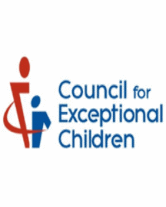Impact of Disruption on Students with Exceptionalities
Students with exceptionalities are more susceptible to the ravishing effects of disruption because of the characteristics of their particular disabilities and because of their generally lower self-esteem. For example, they may resort to carrying weapons to get peers to be friends and to have a false sense of elevated self-esteem. Or they may join a cult or gang to feel a part of a group and thus raise their self-esteem.
Individuals with developmental disabilities are four times as likely to be sexually abused as individuals without disabilities.
The use and abuse of alcohol and drugs by students with exceptionalities are comparable with those of individuals without exceptionalities. However, individuals with emotional and behavioral disorders, learning disabilities, hyperactivity, or attention deficit disorders are more likely to exhibit characteristics overlapping those of substance-abusing students. Thus, they are more likely to abuse alcohol and drugs. Unfortunately, few studies on alcohol and drug abuse have been conducted on students with mental retardation, sensory disabilities, or physical disabilities.
Some researchers hypothesize that aggression and violence are increasing among students with special needs. Also, students with serious emotional and behavioral disabilities are in general education school settings. As restrictive treatments and educational options decrease, these students become the responsibility of general education without an increase in resources. As a result, more aggression and violence will occur in schools.
More on Helping Students Deal With Crises.
Excerpted from Disruption, Disaster, and Death: Helping Students Deal with Crises.







